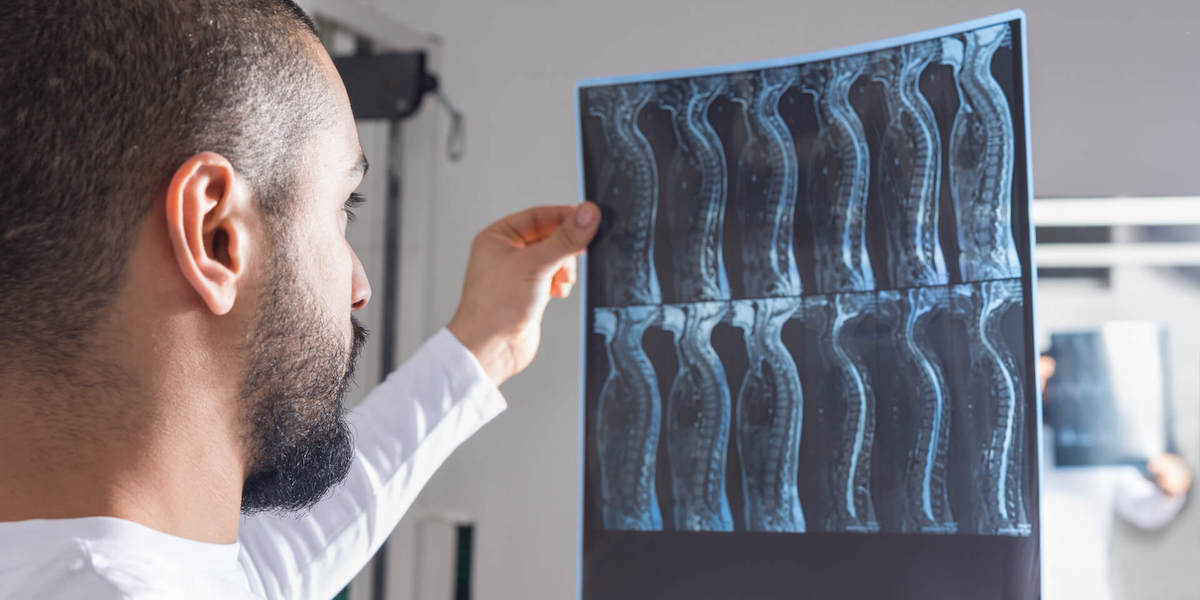
A spinal cord injury can have a lasting impact on the victim’s life, as well as the lives of those around them. These types of injuries can lead to paralysis, either partial or full, which requires costly treatment and care as well as a significant financial impact on the victim’s ability to generate future income — not to mention the countless non-economic impacts that such a serious injury has on all those affected. If someone sustains a spinal cord injury, for example, due to a car accident caused by another driver or a defective product, a tort claim will allow the victim to seek compensation from the responsible party (or their insurance company) to cover these impacts. However, the process of getting what you’re truly owed is much more complicated than simply filing a claim. This is why working with a spinal cord injury attorney in Miami is one of the most important steps a victim and their family can take in the early days following this type of injury.
Contact CarAccidentAttorney.com To Connect With a Spinal Cord Injury Lawyer in Miami Today
CarAccidentAttorney.com is an attorney and medical referral service. If you or a loved one has suffered a spinal cord injury due to someone else’s negligence, we will connect you with a personal injury lawyer in your area who is ready to take your case. We understand how stressful it can be to manage medical needs, legal issues, and the many other personal and professional needs you must attend to, which is why we encourage you to let us help you find an attorney.
Read more below about spinal cord injuries, and contact us as soon as possible to get started toward getting the money you are rightfully entitled to following this tragic and unexpected accident and the resultant injuries. The sooner you are represented by an attorney, the sooner you can focus on getting your own life back on track and adjusting to life after a spinal cord injury.
Understanding the Spinal Cord
The spinal cord is a column of nerves and tissues running from the brainstem to the sacrum and houses the majority of the central nervous system. This central nervous system delivers signals from the brain to the extremities, passing information back and forth such as sensation, spatial location, and the ability to move. When the spinal cord is damaged, information is no longer able to transmit between the brain and the nerves below the site of the injury, meaning that a victim may suffer partial or complete paralysis depending on the location of the damage.
The nerves and membranes that make up the spinal cord are protected by the vertebrae, the bones that link together making up the spine itself. There are other layers of protection for the nerves running up and down the spinal cord, as well, such as the membranes surrounding this important sheath, and the ligaments – known as discs – that hold the vertebrae together and allow for movement.
What Is a Spinal Cord Injury?
A spinal cord injury is, as the name implies, a type of injury directly to the spinal cord, meaning the collection of nerves running through the vertebrae between the brainstem and sacrum. This is different from what is colloquially known as a “broken back,” which is a fracture of the vertebra without damage to the nerves underneath them. While a fractured vertebra is extremely painful and can seriously restrict mobility during recovery, a spinal cord injury may either partially or fully paralyze a victim instantly.
If you suspect someone has suffered from either a vertebral fracture or a spinal cord injury, it is absolutely essential you do not move them on your own. Call 911 immediately and inform the operator of the injuries, and the EMTs at the scene will be able to immobilize the victim and move them onto a backboard without causing additional harm. The only time a spinal cord injury victim should be moved is if they are in danger of immediate additional injury, and even then, this should be done extremely carefully if it is not avoidable.
Symptoms of a Spinal Cord Injury
The following are just a few of the many symptoms a victim may show after suffering from a spinal cord injury. Remember that these symptoms may not all be present at the time of the accident, so if you suspect someone has injured their spine at all, encourage them to stay still, and be sure not to move them. Depending on whether or not they have suffered a “complete” injury, the following symptoms may only be partially observable.
Muscle Weakness
If the victim feels that their muscles in their arms, chest, or legs are weak or they do not have sufficient control over them, this may be an indication that they have suffered nerve damage – possibly in the spinal cord.
Loss of Control Over Muscles In Arms, Chest, or Legs
If the victim is unable to use their arms, chest, or legs, or they are experiencing involuntary spasms in these areas following the accident, it may be an indication that the nerves have been severed, either partly or completely, between the brain and the affected areas.
Loss of Sensation in Arms, Chest, or Legs
As with the loss of control over these areas, a loss of sensation in the arms, chest, or legs may indicate there is a disruption in the nervous functions between the brain and the affected areas. This may be indicated by a tingling or a “pins and needles” feeling they are experiencing.
Loss of Bowel and Bladder Control
Depending on the nature of the injury and the location of the injury along the spinal cord, the victim may suffer from a loss of control over their bowels and bladder. However, these may also be an indication of other injuries unrelated to the spinal cord.
Trouble Breathing
When a victim suffers from a spinal cord injury that has affected their chest, or even their arms, they may experience difficulty breathing. If the injury is serious enough, the victim may need to be put onto a respirator in order to provide fresh air to their body, either during their recovery or indefinitely.




